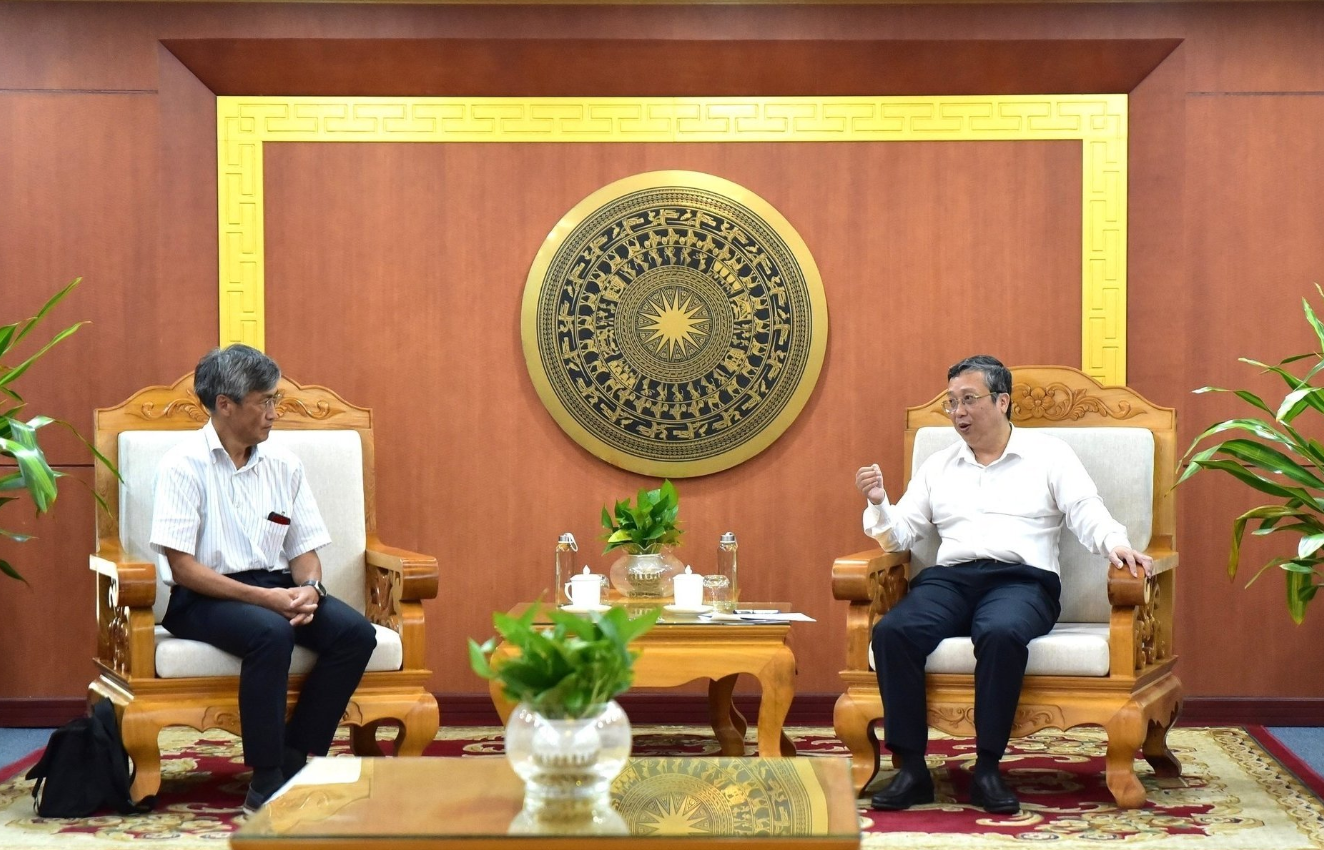Vietnam is set to introduce its first circular cassava production model, a groundbreaking initiative that integrates smart soil health monitoring and cutting-edge Japanese technology.
This project is a collaboration between Vietnam's Ministry of Agriculture and Environment and the Japan International Cooperation Agency (JICA), aimed at transforming the country's cassava production into a sustainable, low-emission industry.
On July 9, Deputy Minister Hoang Trung received a working delegation from JICA, led by Professor Takuro Shinano. The meeting served as a platform to review the project’s progress during the first half of 2025 and to advance the implementation of its components. The initiative, officially named "Transforming the Cassava Production System in Vietnam through Circular Farming and Smart Cassava Starch Value Chain Management," was approved in late 2024.
 Deputy Minister of Agriculture and Environment Hoang Trung receives Professor Takuro Shinano from Hokkaido University, Japan. Photo: Kieu Chi.
Deputy Minister of Agriculture and Environment Hoang Trung receives Professor Takuro Shinano from Hokkaido University, Japan. Photo: Kieu Chi.During the meeting, Deputy Minister Hoang Trung highly praised the project’s significance and goals. He highlighted its potential to successfully develop Vietnam’s first circular farming model for cassava, providing direct support to the Ministry’s "Scheme for Sustainable Development of the Cassava Industry to 2030, with a Vision to 2050." As one of Vietnam’s 13 key agricultural products, cassava is a major global export. The integration of advanced technologies is expected to boost its value and quality, leading the industry toward greener, more sustainable practices.
The Deputy Minister urged the project team to expedite the completion of the laboratory, measurement methods, and the deployment of experts to Tay Ninh province, the location chosen for the pilot model. He also emphasized the project's crucial focus on integrating a carbon measurement, reporting, and verification (MRV) method and intelligent value chain monitoring. The new farming model will identify carbon-sequestering cassava varieties and use high-tech tools, such as sensors, satellite data, and drones—to monitor soil and crop parameters.
Reporting on the team’s progress, Professor Takuro Shinano confirmed that the delegation had worked with the Tay Ninh Department of Agriculture and Environment to select a pilot site with favorable natural conditions and high potential for replication.
The project is scheduled to begin implementation this September. Concurrently, a short-term training program for Vietnamese technical staff will be held in Japan, and equipment installation will be completed at the new laboratory in Tay Ninh. Professor Shinano pledged to collaborate with Vietnamese agencies to ensure all necessary facilities, seed sources, and cultivation processes are prepared for the field experiments.